
FORESTRY
Scope & Guideline
Elevating forestry management through peer-reviewed excellence.
Introduction
Aims and Scopes
- Sustainable Forest Management:
Research aimed at developing and promoting practices that ensure forests are managed in a way that meets current ecological, economic, and social needs without compromising future generations. - Forest Ecology and Biodiversity:
Studies that explore the relationships between forest ecosystems and their biodiversity, including the impacts of management practices on flora and fauna. - Forest Productivity and Silviculture:
Investigations into factors affecting tree growth, yield, and quality, as well as methods to optimize silvicultural practices for various species. - Forest Health and Biosecurity:
Research focusing on the health of forest ecosystems, including the management of pests, diseases, and the impacts of climate change. - Socio-Economic Aspects of Forestry:
Examinations of the social and economic implications of forestry practices, including community involvement and the role of forests in local economies. - Innovative Technologies in Forestry:
Studies that incorporate modern technologies such as remote sensing, drones, and genetic research to enhance forest management and monitoring.
Trending and Emerging
- Climate Change Adaptation Strategies:
An increasing number of papers focus on how forests can adapt to the changing climate, including the resilience of various species and management practices that mitigate climate impacts. - Integration of Technology in Forestry:
There is a growing trend towards the use of innovative technologies such as UAVs and remote sensing for forest monitoring and management, enhancing precision and efficiency. - Agroforestry and Mixed Land Use Practices:
Research is increasingly exploring the benefits of integrating trees into agricultural landscapes, highlighting the dual benefits of productivity and environmental sustainability. - Forest Restoration and Rehabilitation:
Emerging studies are focused on the restoration of degraded forests, emphasizing the importance of biodiversity and ecosystem services in recovery efforts. - Community Engagement and Indigenous Practices:
There is a rising recognition of the importance of involving local communities and indigenous knowledge in forest management, reflecting a more inclusive approach to forestry.
Declining or Waning
- Traditional Timber Harvesting Practices:
Research focusing on conventional timber extraction methods has decreased, possibly due to the rise of more sustainable and innovative practices that prioritize ecological balance. - Fire Management as a Standalone Topic:
While fire management remains important, its treatment as an isolated subject is declining. Researchers are now integrating fire management within broader ecological and climate change frameworks. - Genetic Improvement of Traditional Species:
There is a noticeable decline in research solely dedicated to the genetic improvement of traditional timber species, as interest shifts towards more diverse and resilient species. - Conventional Pest Management Strategies:
The focus on traditional pest control measures is decreasing, likely due to increasing awareness and research into integrated pest management and ecological approaches. - Forest Economics in Isolation:
Studies that analyze forest economics without considering environmental impacts or social factors are becoming less frequent, reflecting a more holistic view of forestry.
Similar Journals
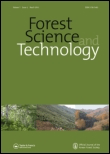
Forest Science and Technology
Unlocking the potential of forests with pioneering technology.Forest Science and Technology is a premier open access journal published by Taylor & Francis Ltd, based in the United Kingdom. Established in 2005, this journal has become a key platform for disseminating high-quality research in the fields of Forestry and Environmental Science, maintaining a strong impact factor and impressive Scopus rankings. As of 2023, it proudly holds a Q2 quartile ranking in Forestry and a Q3 quartile ranking in Management, Policy, and Law categories, highlighting its significance in addressing contemporary challenges in forest management and conservation. With a dedication to fostering scholarly communication, the journal supports open access since 2017, making valuable findings accessible to a wider audience, including researchers, professionals, and students. With the coverage period extending to 2024, Forest Science and Technology continues to contribute to the discourse on sustainable forestry practices and innovative management strategies.
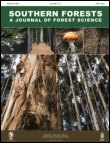
Southern Forests-A Journal of Forest Science
Connecting Scholars to Foster Forest KnowledgeSouthern Forests: A Journal of Forest Science, published by Taylor & Francis Ltd, serves as a vital platform for scholarly discourse in the field of forestry. With a robust ISSN of 2070-2620 and E-ISSN of 2070-2639, this journal highlights cutting-edge research and vital advancements from 2008 to 2024. Based in the United Kingdom, it continues to make significant contributions, evidenced by its current Q3 ranking in the forestry category of Scopus as well as its rank of 94 out of 174 in Agricultural and Biological Sciences. This journal caters to a diverse audience of researchers, professionals, and students, providing access to high-quality articles that promote sustainable forest management and ecological studies. Despite being classified as a non-open access journal, it remains a key resource, ensuring accessibility to crucial information that addresses both local and global forest challenges.

Austrian Journal of Forest Science
Pioneering insights in forestry and environmental policy.Austrian Journal of Forest Science, published by OSTERREICHISCHER AGRARVERLAG, is a distinguished peer-reviewed journal dedicated to advancing knowledge in the fields of forestry and ecological science. With an ISSN of 0379-5292 and an E-ISSN of 0375-524X, this journal serves as a vital platform for researchers, professionals, and students alike, aiming to disseminate innovative research findings, methodologies, and case studies pertinent to forest conservation, management, and policy. Situated in Austria, its diverse scope encompasses critical topics within ecology, evolution, and biodiversity, evidenced by its competitive quartile rankings in 2023, placing it in Q2 for Forestry and Q3 in other related fields. The journal is committed to fostering a deeper understanding of forest ecosystems, making it an essential resource for anyone invested in sustainable forestry practices and environmental policy.
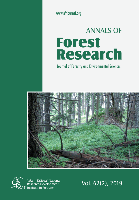
Annals of Forest Research
Innovating research for a greener tomorrow.Annals of Forest Research is a peer-reviewed journal dedicated to advancing knowledge in the fields of forestry, ecology, and plant sciences. Published by EDITURA SILVICA in Romania, this journal has been an open access publication since 2008, providing a platform for researchers to share their insights and findings with a global audience. The journal operates under a rigorous selection process, reflected in its positioning within the Q2 category in Forestry and Q3 in both Ecology and Plant Science as of 2023. With Scopus rankings indicating a solid percentile among its peers, Annals of Forest Research continues to play a vital role in disseminating innovative research and fostering scholarly dialogue. Researchers, professionals, and students are encouraged to explore its diverse range of articles, which address both foundational and contemporary issues in forest management and environmental sustainability, contributing to the sustainable use and preservation of forest ecosystems.

Sumarski List
Illuminating Trends and Practices in Forest ManagementSumarski List, published by the Croatian Forestry Society, serves as a key platform for the dissemination of knowledge and research within the field of forestry. Established in the early 1980s, this journal has maintained a consistent commitment to advancing the understanding of forest management, ecology, and conservation. With an ISSN of 0373-1332 and an E-ISSN of 1846-9140, it provides researchers and practitioners with valuable insights into current trends and practices in forestry, although it currently falls within the Q4 category in the 2023 forestry rankings. The journal is accessible primarily in printed format, promoting rigorous scholarship and discussion. The important contributions of Sumarski List are vital for fostering a greater appreciation of forestry in Croatia and beyond, making it an essential resource for those dedicated to tackling the pressing challenges in forest ecosystems.
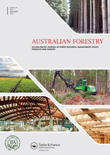
AUSTRALIAN FORESTRY
Elevating the Discourse on Forestry ScienceAustralian Forestry is an esteemed journal dedicated to advancing knowledge in the field of forestry and related environmental science. Published by Taylor & Francis Australia, this journal plays a pivotal role in disseminating high-quality research that spans various aspects of forestry, including sustainable management, conservation practices, and policy analysis. With an impact factor reflecting its significance in the academic community and a Scopus rank of #44 out of 174 in the category of Agricultural and Biological Sciences, Australian Forestry proudly holds a Q2 ranking in its field as of 2023. The journal has maintained a continuous publication record since its inception in 1936, with a commitment to addressing contemporary challenges within forestry. Researchers, professionals, and students alike are invited to engage with this vital resource that fosters insightful dialogue, innovative solutions, and a deeper understanding of forestry science.
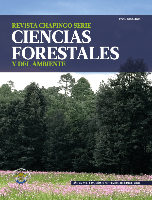
Revista Chapingo Serie Ciencias Forestales y del Ambiente
Fostering collaboration in the pursuit of ecological excellence.Revista Chapingo Serie Ciencias Forestales y del Ambiente, published by Universidad Autónoma Chapingo, serves as a prominent platform for scholars and practitioners in the fields of Ecology and Forestry. Established in 2001, this open access journal has made significant strides in disseminating research that addresses pressing environmental issues, particularly within the Mexican context. With an ISSN of 2007-3828 and E-ISSN of 2007-4018, it has been recognized for its contributions, earning a Q3 ranking in both Ecology and Forestry categories as of 2023. The journal is pivotal in fostering collaboration and knowledge exchange among researchers, professionals, and students dedicated to understanding and preserving forest ecosystems. Access to its rich content is unrestricted, enhancing visibility and impact for innovative research and practical applications in sustainable management and conservation practices.

Journal of Forest Research
Elevating the dialogue on environmental sustainability.Welcome to the Journal of Forest Research, a pioneering publication dedicated to advancing the field of forestry and sustainable ecosystem management. Published by Taylor & Francis Ltd and boasting an impressive Q2 ranking within its category, this journal highlights significant research contributions and innovative practices in forest science. With an ISSN of 1341-6979 and E-ISSN of 1610-7403, the journal spans a fruitful history from 1996 and continues to be an influential platform up to 2024. The Scopus rank places it at an esteemed #55 out of 174 in the realm of Agricultural and Biological Sciences, reflecting its high impact within the community. While this journal is not open access, it offers targeted content for researchers, professionals, and students seeking to deepen their understanding of forest ecosystems and promote sustainable practices. Join us in exploring the intricate relationship between society and forests, and contribute to a crucial dialogue on environmental stewardship.
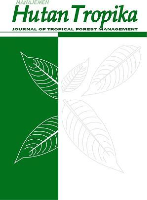
Jurnal Manajemen Hutan Tropika
Empowering ecological understanding through open access.Jurnal Manajemen Hutan Tropika, with ISSN 2087-0469 and E-ISSN 2089-2063, is an esteemed academic journal published by the Bogor Agricultural University, Faculty of Forestry in Indonesia. Since its inception in 1999 as an Open Access journal, it has been dedicated to advancing knowledge in the fields of ecology, forestry, and related environmental sciences. Aiming to provide a robust platform for disseminating research, it has achieved notable rankings within Scopus, including a Q3 classification in Ecology and Ecology Evolution, as well as a Q2 ranking in Forestry for 2023. The journal's commitment to open access ensures that vital research findings are readily available to researchers, professionals, and students alike, fostering collaboration and innovation in tropical forest management. Located at KAMPUS IPB DARMAGA, BOGOR, JAWA BARAT, this journal continues to be a significant resource for enhancing sustainable forest practices and contributing to ecological understanding in the region and beyond.

SILVA FENNICA
Championing the Science of Sustainable ForestrySILVA FENNICA, publishing since 1976, is a premier open-access journal dedicated to the advancement of knowledge in the fields of Forestry and Ecological Modeling. Released under the stewardship of the Finnish Society of Forest Science in collaboration with the Natural Resources Institute Finland, this journal serves as a vital resource for researchers, professionals, and students alike, fostering the exchange of innovative ideas and research findings. With an impressive impact factor placed in the Q1 category for Forestry and holding a commendable Q3 position in Ecological Modeling as of 2023, SILVA FENNICA illustrates its significance by ranking 47th in Forestry and 19th in Ecological Modeling according to Scopus metrics, reflecting a robust peer recognition and dissemination of scholarly work. The journal offers open access to all published articles since 1998, ensuring wide visibility and accessibility of research outputs. Located in Finland, SILVA FENNICA invites contributions that address sustainable forestry practices, forest ecology, and ecological modeling with a commitment to promoting scientific discussion and environmental stewardship.